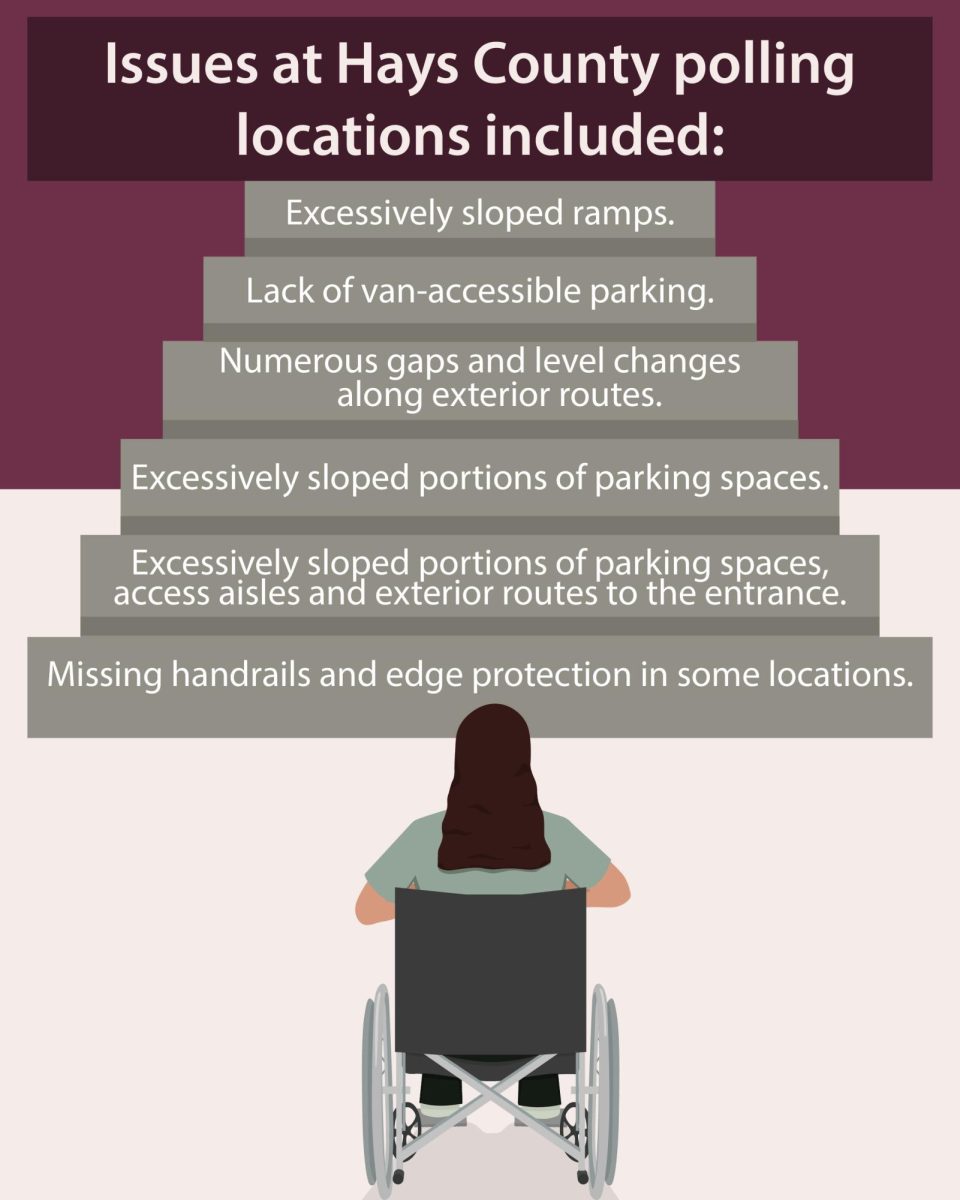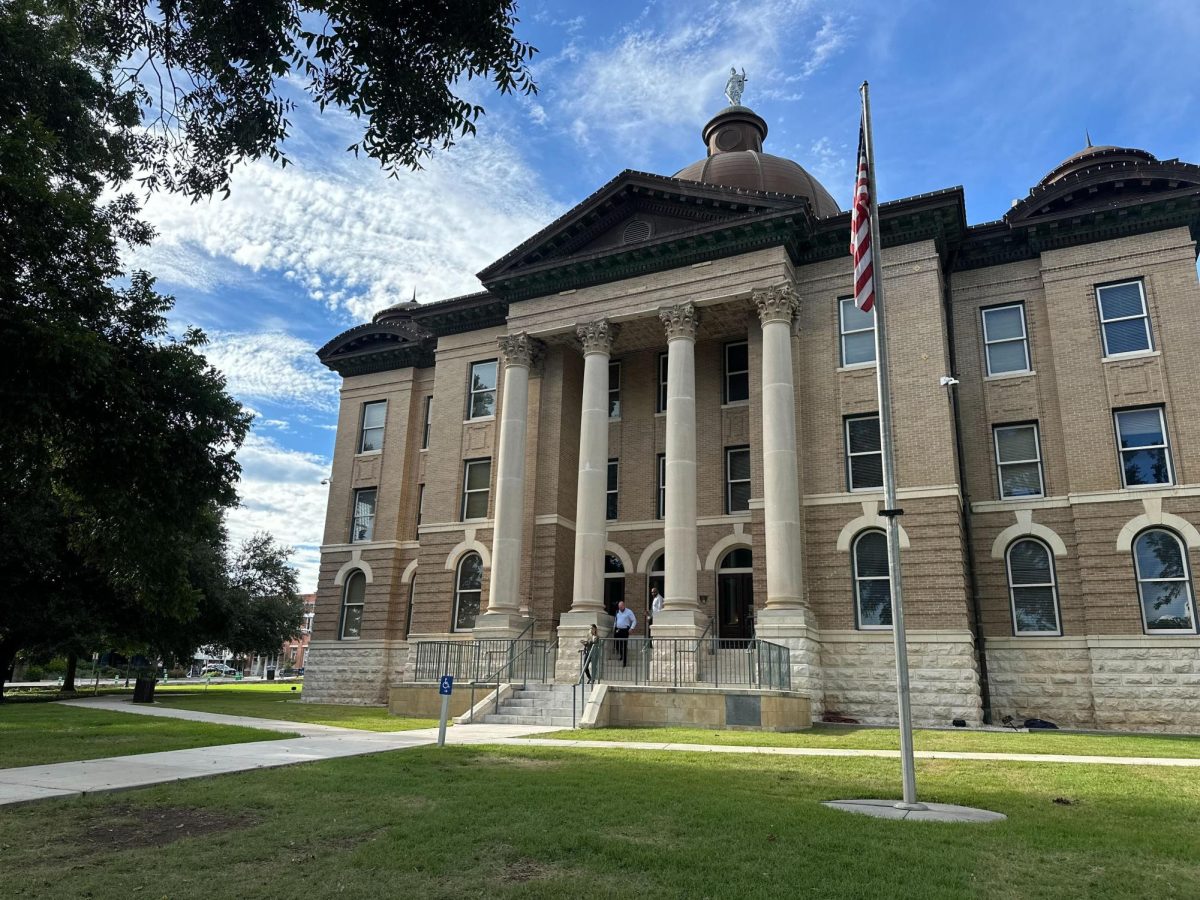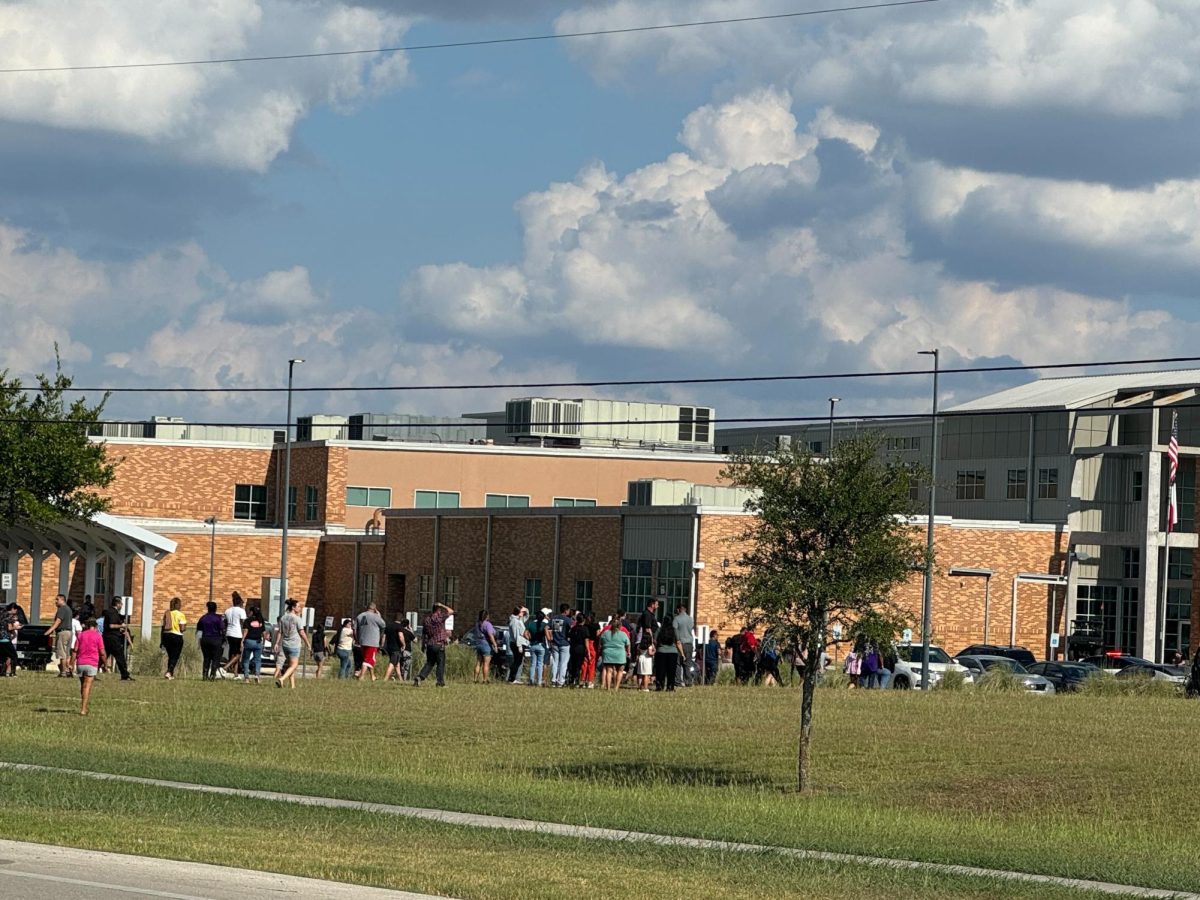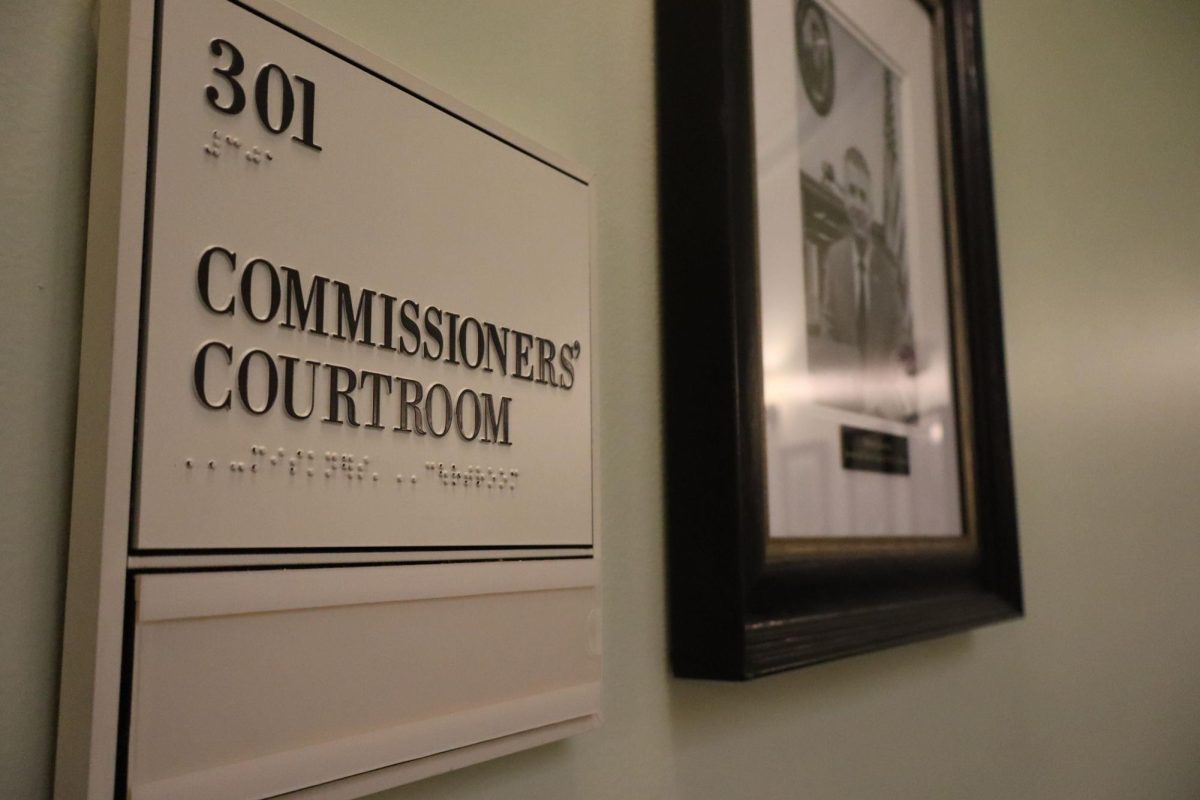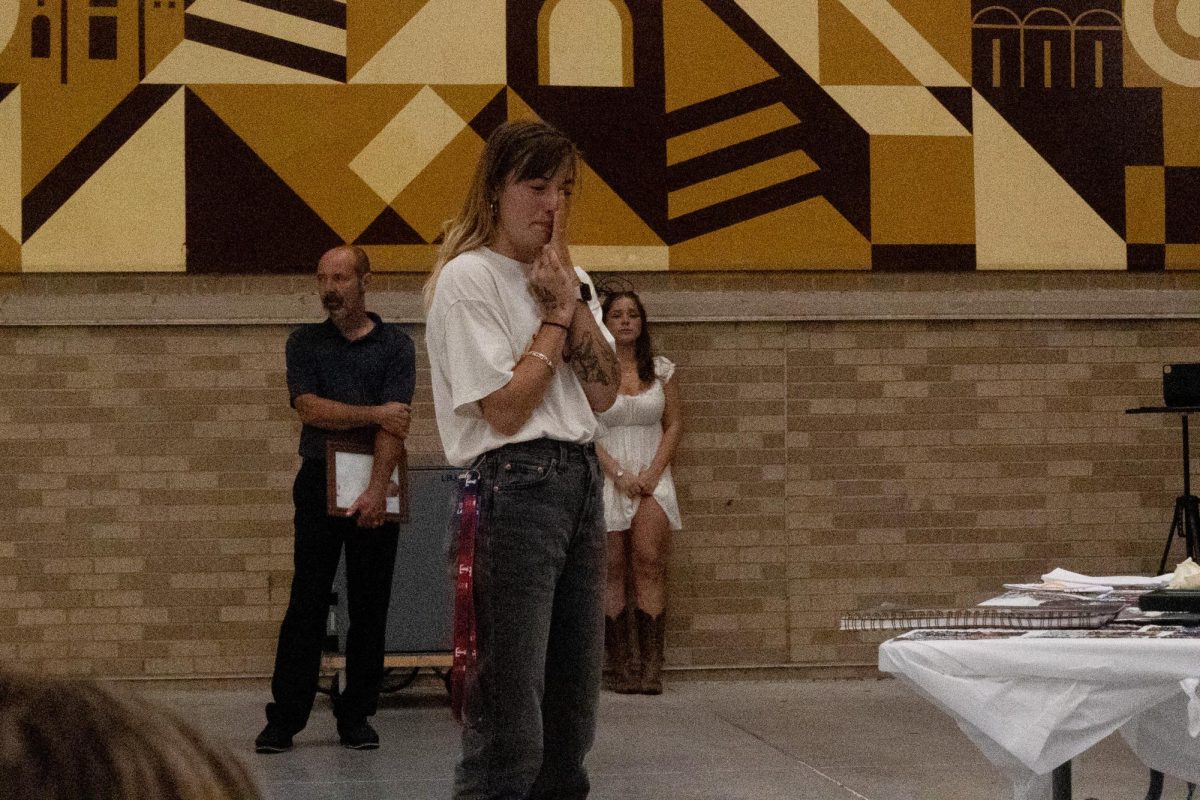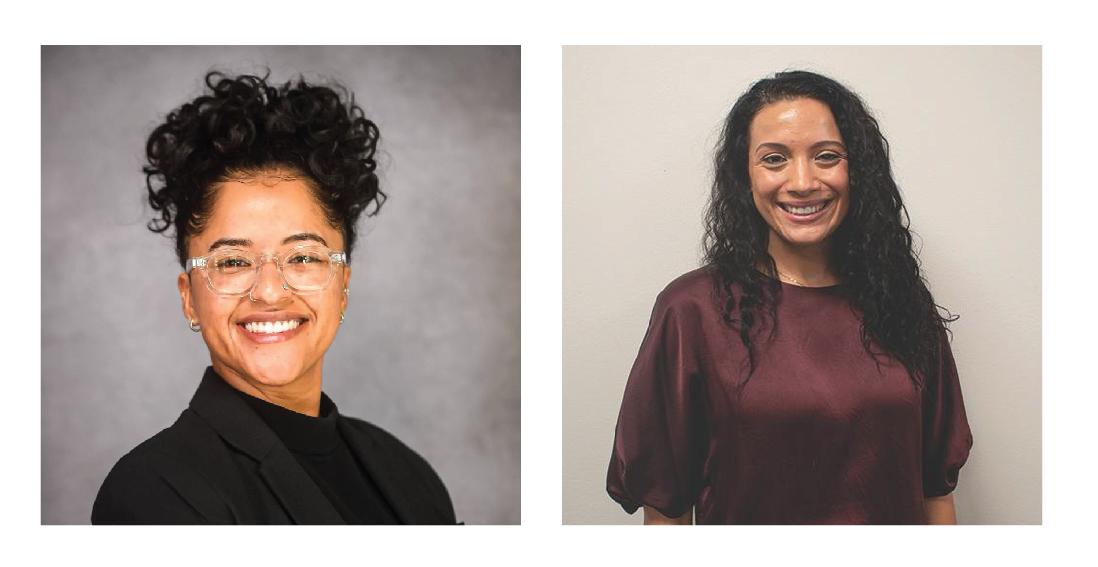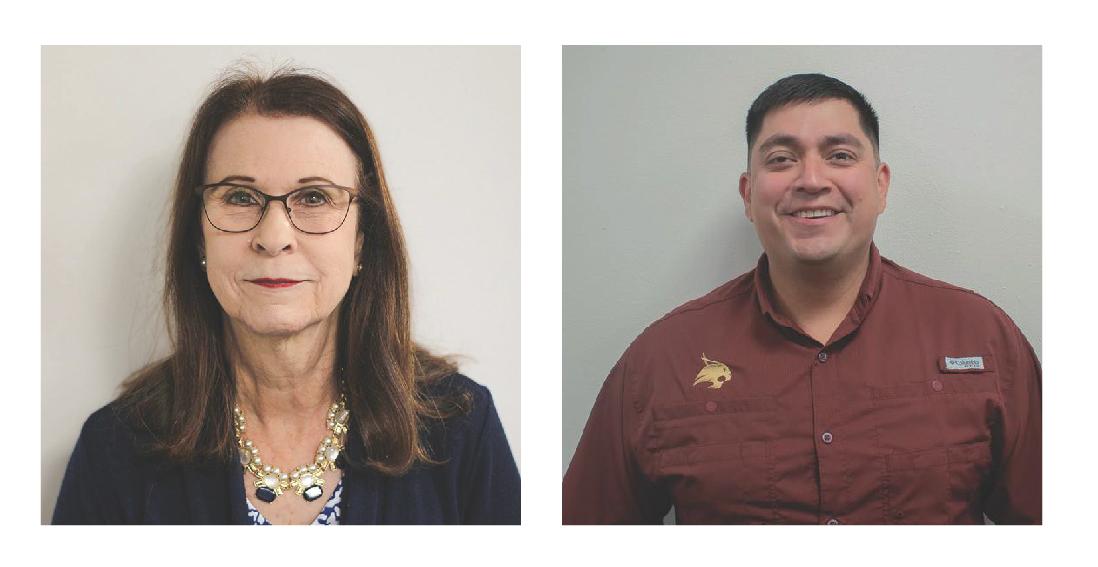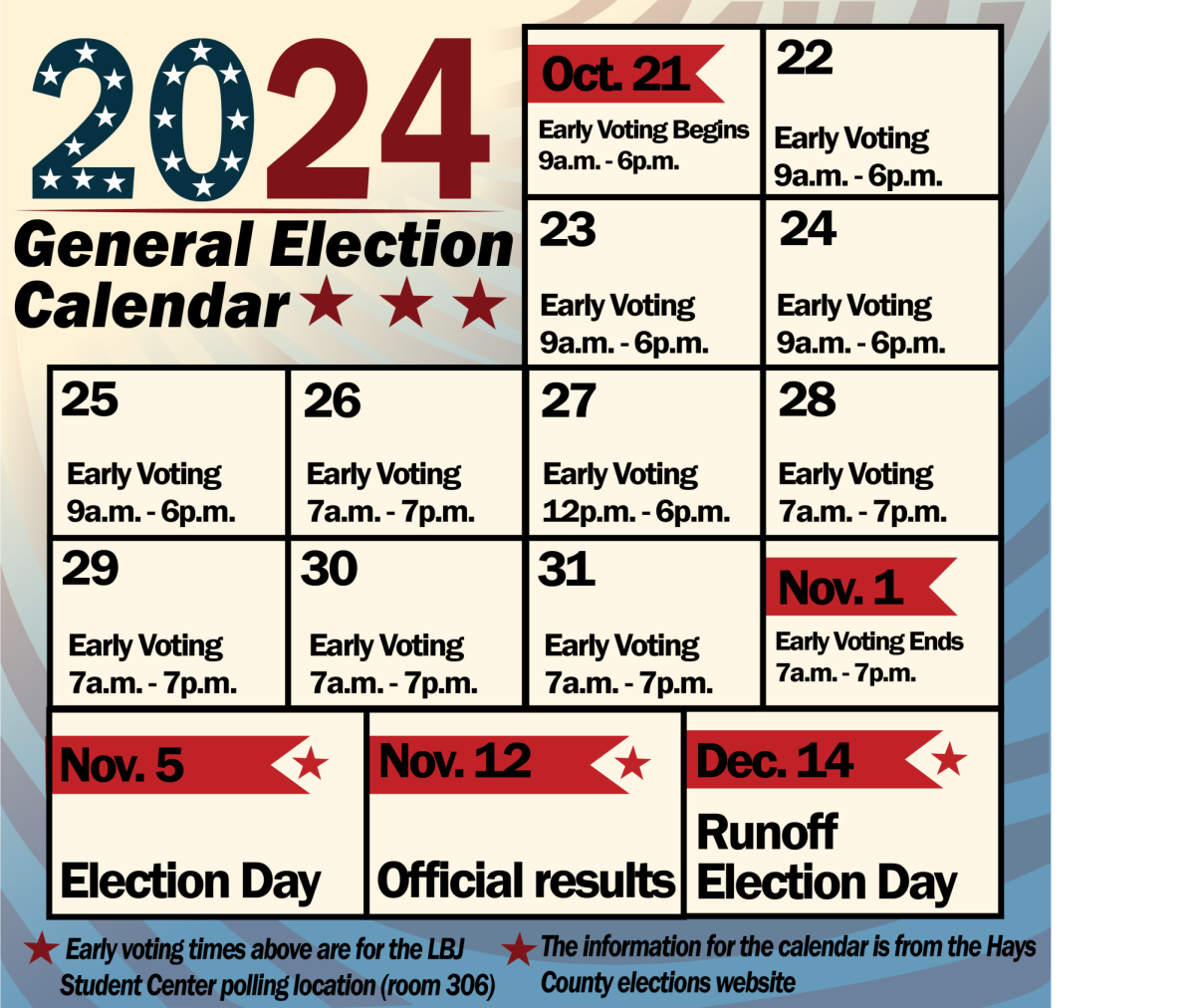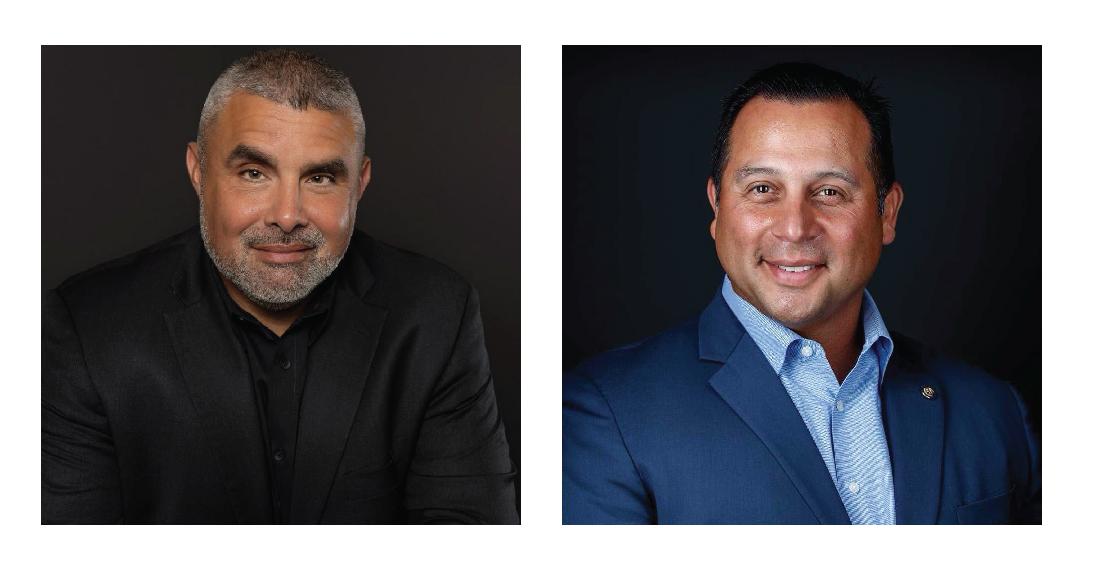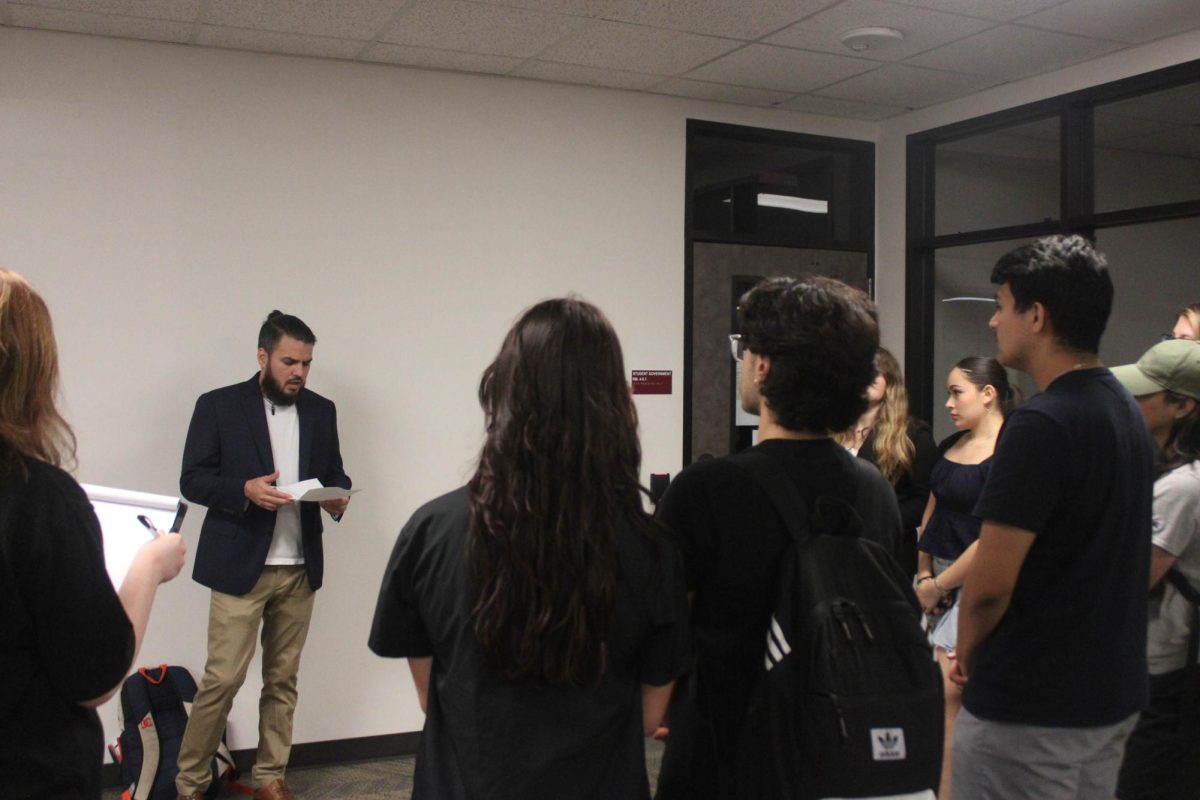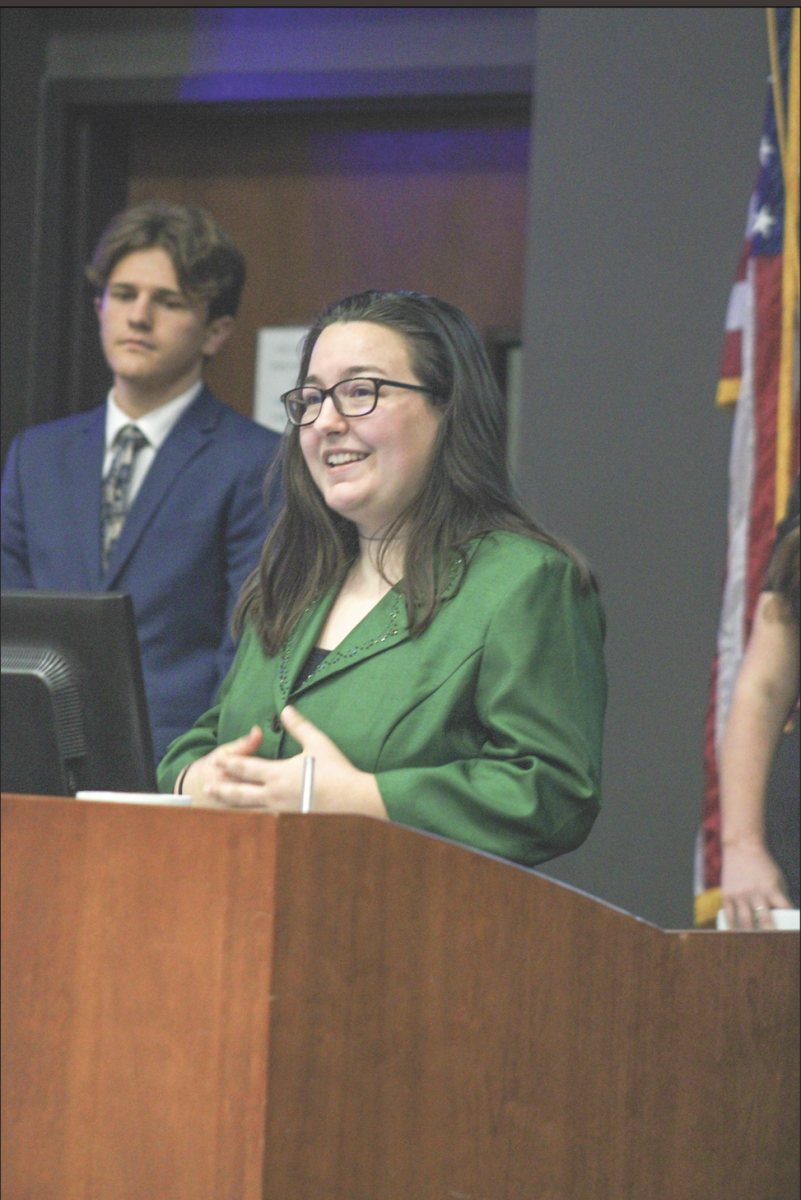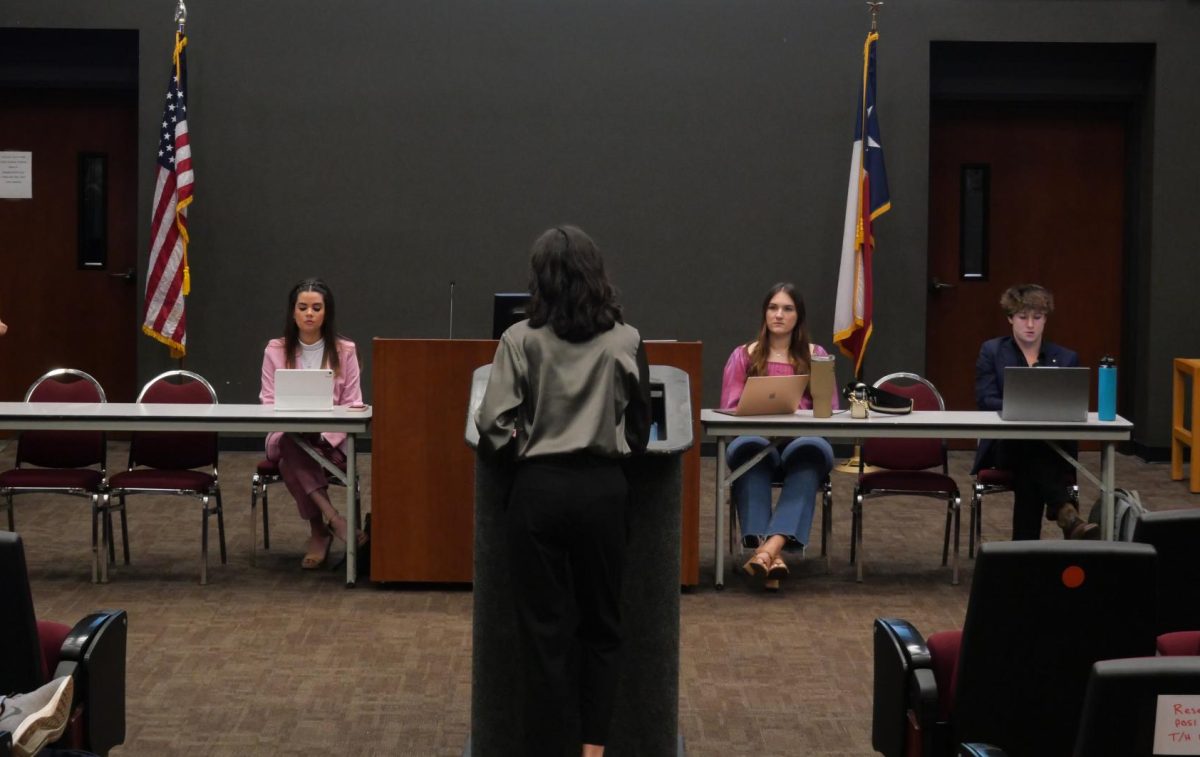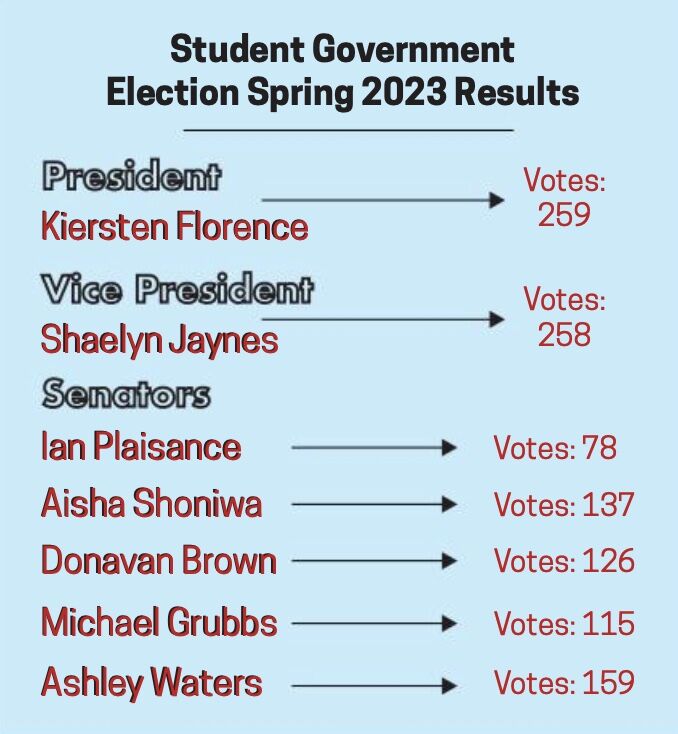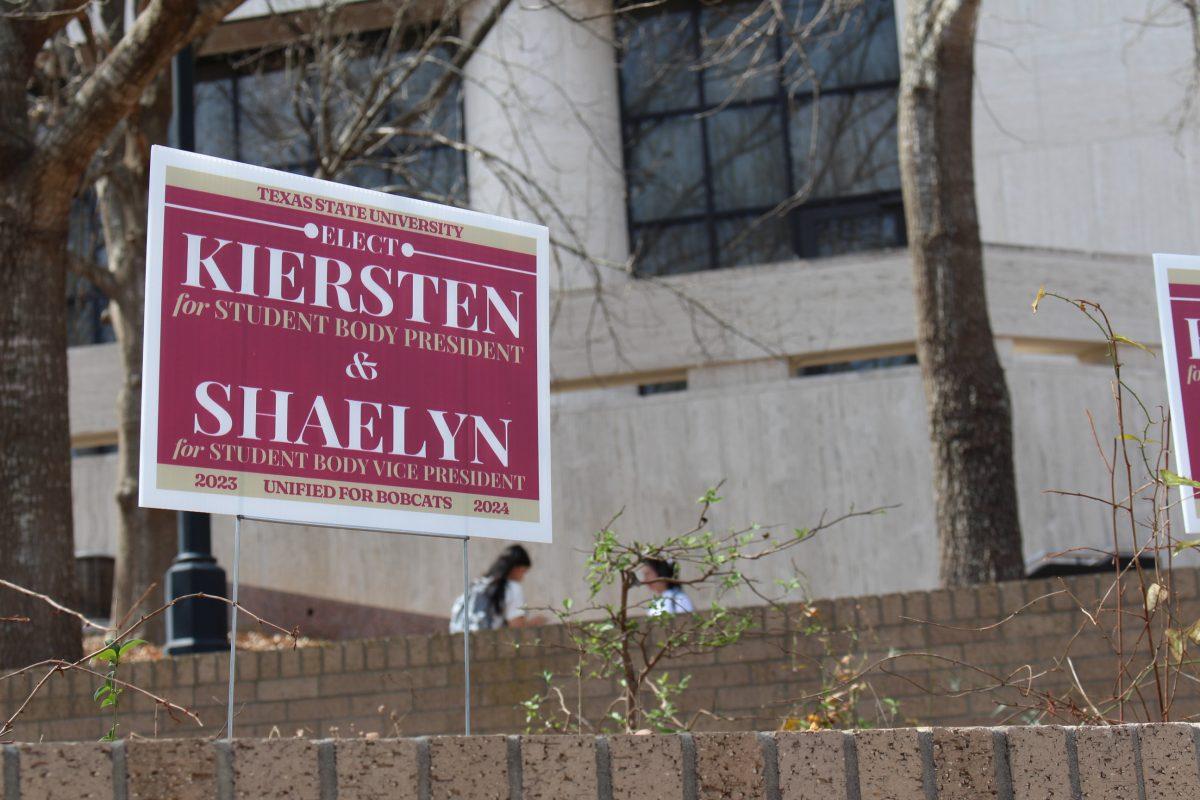Student Government presidential candidates Andrew Gryce and Richard Vega shared their stances on COVID-19 protocols, campus diversity and inclusion initiatives, as well as the overall efficiency of Student Government during a virtual debate on Feb. 10.
Gryce, a finance sophomore, currently serves as a senator for Student Government. Vega, an economic senior, is in his second semester at Texas State after transferring from Austin Community College (ACC).
“I’m campaigning to be the student body president because I believe that there’s a lot of students whose voices are not heard,” Vega says. “I’ve been privileged enough where I have the time to run for something like this. I believe that with that privilege, I should stand up and provide a voice for those that aren’t heard.”
The presidential debate began with questions regarding COVID-19. When asked what COVID-19 campus protocols they would advocate for if elected as president, Gryce says one of his big campaign objectives is the segue back to campus from COVID-19. He says he believes the campus community is doing a great job as far as social distancing and quarantine are concerned.
“‘We haven’t had a lot of spread,’ [University President] Denise Trauth said at the Senate meeting I believe last week,” Gryce says.”I believe we’re having great progress as far as vaccines, and I do want to see vaccinations implemented if they get progressed enough.”
In his response, Vega says he believes the university should continue using face masks until every student is vaccinated.
“The face mask is not to help you; it’s actually to prevent your spread to other students,” Vega says. “Face masks basically protect everybody else from where you’ve been. So I believe that actually what we should be doing is continuing and forcing a face mask mandate.”
Vega says the return to normalcy on campus is dependent on students. He says because of the pandemic, new versions of normal have been created, and he thinks a return to normalcy on campus would be when students are no longer afraid of getting sick.
Gryce says a return to campus normalcy would include continuing to listen to the recommendations and guidelines presented by the Centers for Disease Control and Prevention (CDC) and a safe increase in student culture.
“I want to bring back the culture of the school that we all know and love today,” Gryce says. “That means tailgates, that means being social, that means getting out and being Bobcats and, you know, being one with each other and united as one as a school. And I want to see that come back.”
When asked what populations on campus they feel are underrepresented, Vega says it is difficult to provide a clear answer considering that the campus has essentially been on “lockdown” for the past year.
“It’s really hard for me to answer that question. I would say that, you know, just to promote diversity and inclusion, though,” Vega says. “I think we should look at the root, you know, at the root cause of why certain populations are not more represented in student organizations, or at least, are on campus.”
He says to determine the root causes of why some students are underrepresented, it is important for students to come to campus so he can converse with them and see what their issues are.
The candidates were then asked to discuss the recent concerns from the LGBTQIA+ community that stems from not feeling adequately represented by Student Government. At its Jan. 25 meeting, a resolution to adopt trans-friendly preferred naming pronoun policies was indefinitely tabled by Student Government.
Vega says if elected as president, he aims to make the LGBTQIA+ student body feel represented on campus by empowering the individuals who bring issues to the forefront.
In regard to the tabling of the pronoun resolution, Vega says while he currently does not serve on Student Government, he would make it an effort, if elected, to listen to the concerns that come from the student body and provide the necessary tools and resources to address them.
Gryce, one of the senators who voted to table the pronoun resolution, says he fully supports the LGBTQIA+ community and believes there is not a single Bobcat on campus that should feel left out due to their race, gender, sexual orientation or any other boundary creating conflicts.
“I would love to pass the mic to them and represent their voice,” Gryce says. “We fully endorse them, and we want to hear their voices and truly make a change.”
When asked to address why he voted to table the pronoun resolution, Gryce declined to comment and says a response would go against a “rules reading seminar” that took place in Student Government before the debate. He says he was told not to talk about his role in Student Government while campaigning.
Candidates were then asked to provide their stance on whether they believed Flowers Hall and Beretta Hall should be renamed by the university. Flowers Hall is named after John Flowers, the third president of Texas State, who denied admission to Dana Jean Smith, an 18-year-old Black woman, from enrolling in the university due to a whites-only provision. Beretta Hall is named after Sally Ward Beretta, a daughter of the Confederacy.
Gryce declined to comment again and says the topic is currently an ongoing piece of legislation in Student Government. However, he says he would like to “pass the mic” to those students impacted by the renaming of the halls.
Vega says he is in agreement with renaming the halls and believes the student body should select who they should be renamed after.
“The Confederacy lost. There’s no reason that we should continue celebrating the losers basically. We know [about] the era of reconstruction and the Jim Crow,” Vega says. “We should not continue leaving remnants of this history. You know, it can be read in a history book, but it should not be celebrated by putting the names of those people in the buildings.”
When asked about their plans to advocate for Black and other students of color in regard to campus security, Vega says he would listen to the students, and if they express that they do not feel safe on campus, Student Government would examine what kind of solutions should be implemented to make them feel safe.
“I don’t believe that anybody wants to come to school believing and feeling as if something is going to happen to them, that they have to look over their shoulders while they’re on campus,” Vega says.
Gryce says he wants to see every single Bobcat accounted for, heard and represented and would like to hear from students to move forward in addressing the issue.
Throughout the years, Student Government has had internal conflict among members, including several resignations, one presidential impeachment and frustrations stemming from the tabling of legislation. When asked about plans to unite the organization and better serve the student body, Gryce says Student Government would need to work on improving the communication between existing members.
Vega says he would draw from his previous experience at ACC where he served as Student Government president. Following the 2016 U.S. presidential election, Vega recalls tensions were high throughout the organization. However, he says the way he was able to resolve those tensions was by directing members to put aside their personal agendas.
“What I did was basically focus [on] the student, the senators, the executive, on trying to find out what the issues of the student body were,” Vega says. “I think it’s to remind people, remind the members of Student Government that this is not, you know, some kind of I don’t know, something that you just put on your resume, it’s actually something that actually affects people’s lives.”
Voting for the Student Government presidential election will take place from Feb. 15-17. Students will be able to vote from their mobile devices.
A recording of the presidential debate can be viewed on The University Star’s website.
Categories:
Presidential candidates aim to unite campus, ‘pass the mic’ to underrepresented students
Brianna Benitez, News Editor
February 10, 2021
(Bottom left to right) Student Government presidential candidates Andrew Gryce and Richard Vega answer moderator questions, Wednesday, Feb. 10, 2021, at the Student Government Presidential Debate via Zoom.
0
Donate to The University Star
Your donation will support the student journalists of Texas State University. Your contribution will allow us to purchase equipment and cover our annual website hosting costs.
More to Discover




